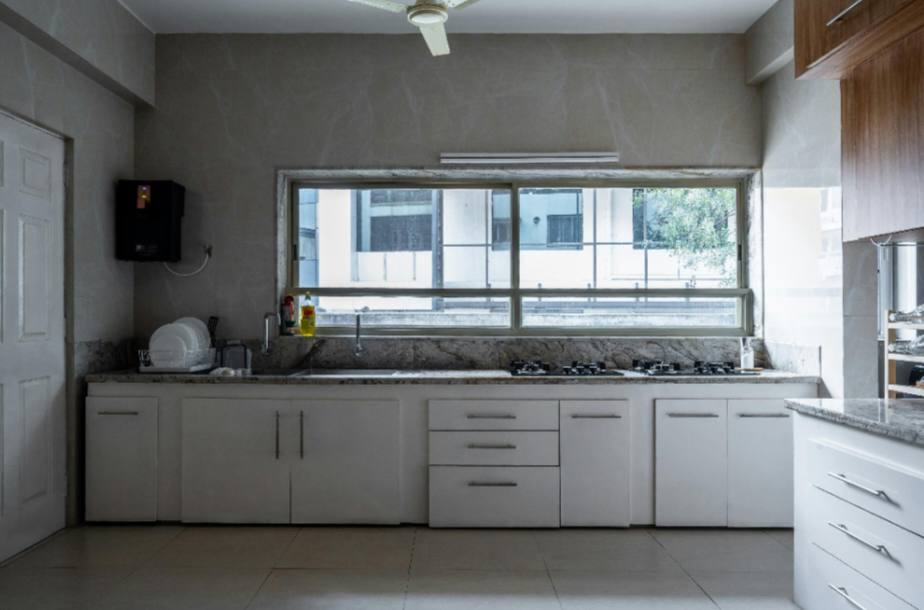Dealing with a noisy Samsung refrigerator can be quite bothersome, but there are simple remedies available to alleviate the issue and create a quieter atmosphere at home.
You have several options at your disposal, from securing loose parts and cleaning the condenser coils to replacing a malfunctioning fan motor or compressor, fixing damaged door seals, or defrosting the fridge. We’ve got all these solutions covered.
Bid farewell to the noisy disturbances of your Samsung refrigerator and usher in a more peaceful kitchen with these ten straightforward fixes.
Why Is Your Samsung Refrigerator Making Noise?
To assist you in effectively addressing this problem, let’s start by identifying the issue before we explore potential solutions. Here are some factors to take into account:
Loose components are a frequent culprit behind a noisy refrigerator. These components may encompass the fan, compressor, or condenser coils.
When any of these parts are not securely fastened, they can generate vibrations that lead to rattling or humming noises.
1. Loose Components
Loose components are a frequent culprit behind a noisy refrigerator. These components may encompass the fan, compressor, or condenser coils. When any of these parts are not securely fastened, they can generate vibrations that lead to rattling or humming noises.
2. Dirty Condenser Coils
Unclean condenser coils can also be responsible for unusual noises from your Samsung refrigerator. These coils play a vital role in dissipating heat from the refrigerator.
When they become obstructed by dust or debris, they can force the compressor to operate with greater effort, leading to a buzzing or humming noise.
3. Malfunctioning Fan Motor
If the unfamiliar sound emanating from your Samsung refrigerator resembles a whirring or clicking noise, it might be attributed to a faulty fan motor.
The fan motor plays a critical role in distributing cold air within the refrigerator, and when it malfunctions, it can produce bothersome and loud sounds.
4. Faulty Compressor
A malfunctioning compressor is another potential source of noise in a Samsung refrigerator. When the compressor is not working properly, it can generate a noticeable humming or buzzing noise, which might be audible throughout the house.
5. Damaged Door Seals
Damaged door seals are another possible cause of noise in your Samsung refrigerator. When the door seals are compromised, they can allow air to escape from the refrigerator, leading to increased strain on the compressor. This added workload can produce a buzzing or humming sound as the compressor works harder than necessary to maintain the desired temperature inside the fridge.
6. Ice Build-Ups
When your Samsung refrigerator emits clicking or popping sounds, it might be attributed to frost accumulation. Ice can build up on the evaporator coils, causing them to expand and contract as they cycle. This gradual ice buildup can lead to an unsettling popping sound originating from your refrigerator.
Pros and Cons of Washing Machine
Pros
- Convenience
- Efficiency
- Consistency
- Capacity
- Specialized Cycles
Cons
- Initial Cost
- Maintenance
- Water and Energy Use
- Noise
- Space
Differences Between washing machine and Dryer
Washing machines
Washing machines are typically connected to both water and electricity,
Dryers
dryers use electricity or gas to generate heat.
Alternative to washing machine
Washboards
Traditional washboards are still used in some areas. You scrub clothes against the ridged surface with soap and water. It’s labour-intensive but can be effective for small loads.
7. Refrigerant Leak
If you notice a hissing or bubbling sound coming from your Samsung refrigerator, it could be indicative of a refrigerant leak. Refrigerant is responsible for cooling the air inside the refrigerator, and if it escapes, the compressor must work harder to maintain normal operation and the desired temperature. This increased workload can result in the hissing or bubbling noises you’re hearing.
8. Worn Out Evaporator Fan Motor
When the noise emanating from your Samsung refrigerator resembles a grinding or squealing sound, it could be indicative of a worn-out evaporator fan motor. The evaporator fan motor is responsible for circulating air over the evaporator coils, and when it becomes worn out, it can produce these common sounds in your refrigerator.
How To Fix a Samsung Refrigerator that’s Making Noise
1. Tighten Loose Components
When the noise issue in your Samsung refrigerator is attributed to loose components, the initial step is to pinpoint and secure these loose parts. This might encompass the fan, compressor, or condenser coils.
Utilize a screwdriver or wrench to tighten any loose screws or bolts. By doing so, you should be able to prevent these components from vibrating and causing unwanted noise.
2. Clean Condenser Coils
To resolve noise problems stemming from dirty condenser coils in your Samsung refrigerator, a simple cleaning process can be quite effective. You can use a soft-bristled brush or a vacuum cleaner to remove any accumulated dust or debris from the coils.
By ensuring the coils are clean, the compressor won’t have to exert as much effort, which should lead to a reduction in the noise produced by your refrigerator.
3. Replace Fan Motor
When the noise in your Samsung refrigerator is attributed to a malfunctioning fan motor, the solution may involve replacing the motor. To ensure a quality replacement, it’s advisable to acquire a new motor from an authorized Samsung dealer or a reputable refrigerator repair shop.
Once you have the new motor, carefully remove the old one and install the replacement. This should effectively eliminate the noise issue in your refrigerator. If you’re not comfortable with the replacement process, it’s recommended to seek the assistance of a professional appliance repair technician.
4. Replace Faulty Compressor
When addressing a noisy Samsung refrigerator due to a faulty compressor, the solution often involves replacing the compressor with a new one. This is a more intricate and professional repair task that should only be handled by a refrigerator repair service.
A trained technician will need to diagnose the issue and, if required, replace the compressor. After the compressor replacement, the noise should be resolved, and your refrigerator should return to normal operation. It’s crucial to entrust this task to a professional, as it involves handling refrigerant and complex components.
5. Replace Damaged Door Seals
If the rattling noise issue in your Samsung refrigerator is caused by faulty door seals, replacing these seals could be the solution. Over time, door seals can become brittle and develop cracks, which can lead to air leakage and cause the compressor to operate with greater effort.
To address this problem, it’s important to carefully replace the old, damaged door seals with new ones. This can help restore the proper sealing of the refrigerator and reduce the strain on the compressor, ultimately eliminating the noise issue.
Conclusion
The presence of motor noise in a Samsung refrigerator can be a bothersome issue, but it’s essential to identify and address the root causes for a quieter and more efficient appliance. By understanding the potential culprits, such as fan motors, compressors, or other components, and taking appropriate actions like tightening loose parts, cleaning coils, or seeking professional assistance for complex repairs, you can effectively eliminate the noise problem.
Maintaining your refrigerator’s components and promptly addressing any unusual sounds will not only enhance your kitchen’s tranquility but also extend the lifespan of your appliance. A quiet and well-functioning Samsung refrigerator ensures that your food remains fresh and your home environment remains peaceful.






